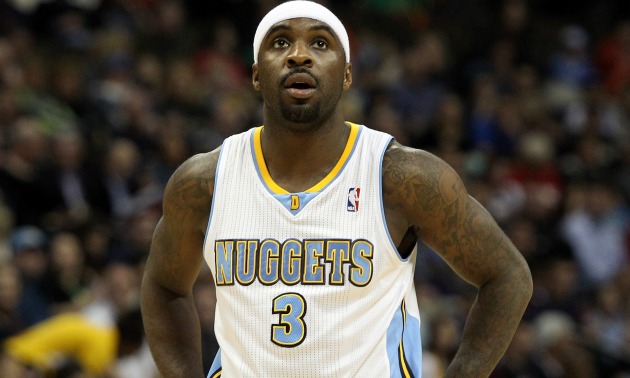After two DUI arrests in six months, Ty Lawson watched his level of value plummet. So, the Houston Rockets decided to get him for a relatively cheap price… at least in terms of raw numbers.
A common refrain from many analysts and pundits on Sunday night after news of the Lawson deal broke was this: “It’s cheap and therefore low-risk, so why not?”
This is a line of argumentation which has also been used in reference to the Lance Stephenson acquisition by the Los Angeles Clippers… and the Josh Smith acquisition by the very same Clippers, whose embrace of the erratic but potential-filled player continues unabated.
This larger notion of “He’s cheap, so why not take a chance?” is a perfectly reasonable line of thought, mind you. However, the focus of this piece is on the idea that coming with a relatively cheap price tag or a very flexible deal does not constitute the full extent of being “low-risk.” There’s a lot more to the idea and reality of being a low-risk player, particularly in the realm of chemistry, and it seems that the Rockets — by acquiring Lawson right after allowing Smith to go to ClipperLand — are ignoring this point at their peril.
Lawson makes bad decisions (off the court) — when you get nailed for two DUIs in six months, something’s flawed beyond the point where one shrugs the shoulders and casually says, “Ah, bad night or isolated incident — those things happen.”
No, actually — these things don’t just happen. A repeat offense in half a year’s time is hardly a normal occurrence. Lawson is a troubled individual. The Rockets are naturally hoping they can get hold of him and set him straight. A lot of commentary Sunday night expressed the same basic idea: “If Lawson gets his life in order, this will be a great deal for Houston.” Well, that’s a big part of the point — the chances Lawson cleans up his act are not that good. Therefore, in exploring this idea of “risk,” is putting such a volatile and wayward player on the floor alongside the likes of James Harden and Dwight Howard a good idea?
After getting rid of Josh Smith, an extremely exasperating power forward on a team already loaded at the 4 position, Houston seemed to have created a roster in which fewer players would dominate the ball, enabling the Rockets’ offense to flow a lot better than it has in the past. A levelheaded, distribution-minded floor general could have blended in with the rest of the starting five and made sure the ball wouldn’t stick in halfcourt sets. Lawson brings considerable upside, but he also brings a lot of volatility into the mix in Houston, and if this chemistry experiment blows up, another year of Harden and Howard and other relatively young players goes up in smoke, with the 2016 free-agency bonanza being a time when organizations will want to be seen as supremely attractive destinations for high-quality players.
Are we SURE this is a low-risk deal with Lawson? It seems that there’s a lot more riding on his performance than just one season.
Lawson was fearless on the 2013 Denver Nuggets. He was a take-charge player in the first round of the playoffs against the Golden State Warriors, one of a very few Nuggets who really couldn’t have been blamed for that loss. (The 2015 NBA Finals MVP, Andre Iguodala, bore more responsibilty for that defeat. Life, man.) If that’s the version of Lawson the Rockets are getting, they’re a title contender. Yet, everyone can see that much as Rajon Rondo has fallen off the face of the earth since being a top point guard in 2012 with the Boston Celtics, Lawson — albeit for very different reasons — is also a highly diminished player relative to his peak years.
Consider this part of the Lawson deal, too: Where’s Houston’s on-court mentor for Lawson?
The Clippers getting Lance Stephenson and Josh Smith doesn’t make sense in isolation, but it’s clear that Paul Pierce is on the roster to bring those volatile players along and help them to become better professionals. Pierce being a coach on the floor allows the acquisitions of two headcases to become allowable. Where, though, is that Pierce-like figure for the Rockets? Josh Smith might be gone, but Lawson with Harden and Dwight creates a lot of headstrong personalities in the same starting five.
If the Rockets suffer through one headache after another this season, I don’t think anyone inside the organization will say this was a “low-risk” acquisition. Loving bad boys instead of the responsible ones can occasionally pay off in the form of encountering a unique artistic genius which is able to be unleashed under just the right circumstances. Normally, though, loving the bad boy instead of the sensible and well-adjusted one leads to nothing but trouble.
We’ll see if the Rockets take off… or if they explode… in the coming season.
